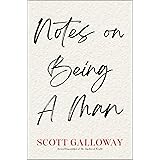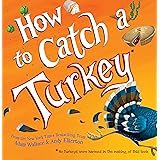The Hidden Challenges and Surprising Rewards of Writing a Novel Outside Your Own Culture
Ever found yourself tangled in the knotty question of whether it’s right—or downright audacious—to write a novel set in a culture that’s not your own? Trust me, you’re not the only one pacing this tightrope. I’ve had a long-simmering draft on my desk for years, and no matter how much I adore the plot and characters, the idea of jumping into someone else’s world feels like stepping into a linguistic minefield. There’s this nagging fear—what if I’m called out as a poser, or worse, a cultural traitor? The truth is, creative freedom often clashes with ethical boundaries, especially when your muse pulls you toward a foreign horizon. So, how do we navigate this delicate dance without losing our voice or disrespecting the culture we want to explore? Let’s unpack this conundrum—question the “why” behind your choice, the responsibilities on your shoulders, and discover a path through the complex ethics of cultural storytelling. Ready to dive in? LEARN MORE
Is it ethical to write a novel about a different culture? And how to do it.
I have a novel draft that has been sitting around for years. I add to it whenever inspiration strikes me, which, regarding the novel, is infrequent.
I love the plot, I love the characters, I love the general idea behind it. The only thing that bugs me is whether it is stupid to write about a different culture that is not my own, which is one of the reasons my creative process is blocked.
I sometimes feel ashamed and guilty, or try to telltale the future in my mind, and fear that as a writer I’ll be shamed that I didn’t write about my culture in my novel. I fear that people will call me a hypocrite, a traitor, or other adjectives that will humiliate me and decrease the value of my work.
I sometimes ask myself, am I a poser or wannabe for wanting to write about a different culture? Am I allowed to write about a different culture other than my own?
Does a writer have the responsibility to portray their own culture in their work and not deal with someone else’s? I have always questioned these. And no, it’s not because I don’t like my culture, I appreciate it, an appreciation that even grew higher as I aged.
I want to write about my culture of origin, too. But the novel I’m working on right now, and perhaps my debut novel, takes place in a foreign culture, far away from my own, because that’s where I want to explore and imagine my story taking place.
Let’s explore the question of whether and how to write about a different culture on your own.
Question why you want to write about this culture
Question why you’re compelled to write about that specific culture, what you want to explore, and why you want to base your story on that specific place and cultural background.
Maybe you want to add your voice to the mix, offering a different perspective from the lens of the culture you want to tackle. Maybe you have this unique storyline that wasn’t discovered before and will offer fresh insights with the characters you developed.



















